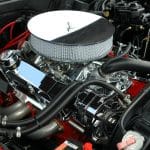As a vehicle owner, there’s nothing more rewarding than seeing your car outperform its expected lifespan. It’s a testament to your meticulous attention to detail, commitment to regular maintenance, and understanding of your vehicle’s needs. But you might be questioning, can regular maintenance truly extend the lifespan of your car?
In this article, we delve into how specific aspects of regular maintenance – from timely oil changes to tire checks – contribute significantly to your car’s longevity. By adhering to these practices, not only can you potentially lengthen your car’s life, but you can also save on costly repairs and insurance rates.
A voir aussi : What Are the Latest Advances in Car Security Systems?
Regular Oil Changes: A Lifeline for Your Car’s Engine
The engine, often referred to as the heart of your vehicle, significantly benefits from regular oil changes. Just as the human heart needs clean, healthy blood to function, so too does your car’s engine need clean, fresh oil to keep running smoothly.
Oil serves as a coolant and lubricant, reducing friction among the moving parts of your engine. Over time, however, it becomes contaminated with dirt and debris, leading to increased friction and potential engine damage. Regular oil changes, typically every 3,000 to 5,000 miles, can help prevent this, ensuring your engine’s optimal performance and extending its life.
Sujet a lire : How to Deal with Common Hybrid Car Problems?
Coupled with an oil change, it’s also recommended to replace your car’s oil filter. This will ensure that any present contaminants are removed, allowing the new oil to circulate freely and optimally through your engine.
Tire Maintenance: A Gateway to Improved Vehicle Longevity
Tire maintenance is another key aspect of regular car maintenance that can extend your vehicle’s lifespan. Just as the right shoes can keep a runner’s body healthy and injury-free, the right tires, properly cared for, can do the same for your car.
Tires that are incorrectly inflated, worn, or misaligned can lead to uneven pressure distribution and increased friction, putting unnecessary strain on your vehicle. Regular tire checks can help prevent this, ensuring your tires stay in optimal condition and your car maintains its efficiency.
Moreover, tire rotation, typically recommended every 6,000 to 8,000 miles, can help ensure even wear and extend the life of your tires. This is a simple yet effective maintenance task that can significantly impact your car’s overall performance and lifespan.
Regular Auto Check-ups: The Backbone of Your Vehicle’s Health
Regular auto check-ups, akin to our annual medical check-ups, are integral to your vehicle’s overall health and longevity. Not only do they help detect issues before they become major problems, but they also ensure that your car is functioning at its best.
During these check-ups, mechanics will thoroughly inspect your car, checking the brakes, transmission, cooling system, and other key components. They will also perform necessary maintenance tasks, such as replacing air filters and spark plugs, and top off any fluids.
Regular auto check-ups can help maintain your vehicle’s optimal performance, prevent costly repairs in the future, and ultimately, extend its life.
The Impact of Regular Maintenance on Your Car Insurance
Regular car maintenance not only extends your vehicle’s lifespan but can also influence your car insurance rates. Insurance companies often consider the state of your vehicle when determining your premiums. A well-maintained car is less likely to be involved in accidents or breakdowns, thus presenting a lower risk for insurance providers.
Even small maintenance tasks can make a significant difference. For instance, maintaining clean headlights can improve your visibility and reduce the likelihood of accidents. Similarly, ensuring your tires are in good condition can prevent blowouts and other dangerous incidents on the road.
Moreover, regular maintenance records can serve as proof of your commitment to vehicle safety, which may positively influence your insurance premiums.
The Long-term Financial Benefits of Regular Car Maintenance
Regular car maintenance does incur a cost, but when compared with the potential cost of major repairs or a new vehicle purchase, it’s a clear investment. Regular maintenance helps prevent costly issues, prolongs the life of your vehicle, and can even lead to savings on your car insurance.
Consider this: an oil change might cost you between $20 and $50, but a new engine can cost thousands of dollars. Similarly, regular tire checks and rotations may be an added expense, but they can save you from the cost and hassle of replacing prematurely worn tires.
In essence, regular car maintenance is about being proactive rather than reactive. It’s about taking the time to invest in your car’s health now, to save on potential expenses and extend its lifespan in the long run.
Benefits of Using Synthetic Oil Over Conventional Oil
When it comes to oil changes, one key decision you have to make is choosing between synthetic oil and conventional oil. Synthetic oil, despite being slightly more costly, can offer multiple benefits that contribute to extending your car’s life.
Synthetic oils are chemically engineered to offer superior performance. They’re designed to resist breaking down even under high temperatures and severe driving conditions, ensuring they maintain their protective properties for a longer time than conventional oils. This means you can often go longer between oil changes, which can save you time and money in the long run.
Moreover, synthetic oils flow better in low temperatures, quickly reaching critical engine parts to provide necessary lubrication. This can be particularly beneficial in cold weather, protecting your engine from cold-start wear. On the other hand, in high temperatures, synthetic oils resist thinning, which helps to reduce engine wear.
Synthetic oil also contains fewer impurities compared to conventional oil. This means it’s less likely to form sludge, a harmful substance that can clog your engine and reduce its lifespan. By keeping your engine cleaner, synthetic oil can contribute to extending its life and improving overall vehicle performance.
Overall, benefits offered by synthetic oil can contribute to your engine’s longevity and thereby extend your car’s lifespan.
The Importance of Regularly Checking and Replacing Your Air Filter
Your vehicle’s air filter is another component that plays a crucial role in its longevity. The air filter acts as your vehicle’s lungs by trapping dirt, dust, and other contaminants before they can enter your engine. However, over time, these particles can clog the filter, restricting airflow to your engine and affecting its performance.
A clogged air filter can lead to decreased acceleration, horsepower, and fuel economy. In extreme cases, it can even cause the engine to fail, leading to costly repairs. By regularly checking your air filter and replacing it when necessary, you can prevent these issues and extend the life of your engine.
Most vehicle manufacturers recommend replacing the air filter every 12,000 to 15,000 miles, but this can depend on your driving conditions. If you frequently drive in dusty or dirty conditions, you might need to replace your air filter more often.
By maintaining a clean air filter, you ensure your engine gets the clean air it needs to perform properly, which in turn promotes your vehicle’s overall health and longevity.
Conclusion
In conclusion, regular car maintenance is more than just a chore; it’s an investment in the longevity of your vehicle. By performing regular oil changes, checking your tires, scheduling routine auto check-ups, using synthetic oil, maintaining your air filter, and keeping an eye on the overall condition of your vehicle, you can significantly extend your car’s lifespan and avoid costly repairs.
Moreover, it’s not just about extending the life of your vehicle, but also about ensuring it runs at its best, providing you with a smooth, safe, and efficient drive. So, take out your owner’s manual, get familiar with your car’s maintenance schedule, and remember that caring for your car today can mean fewer problems and more miles in the future. Regular maintenance is the key to keeping your vehicle on the road and in your life for many years to come.











